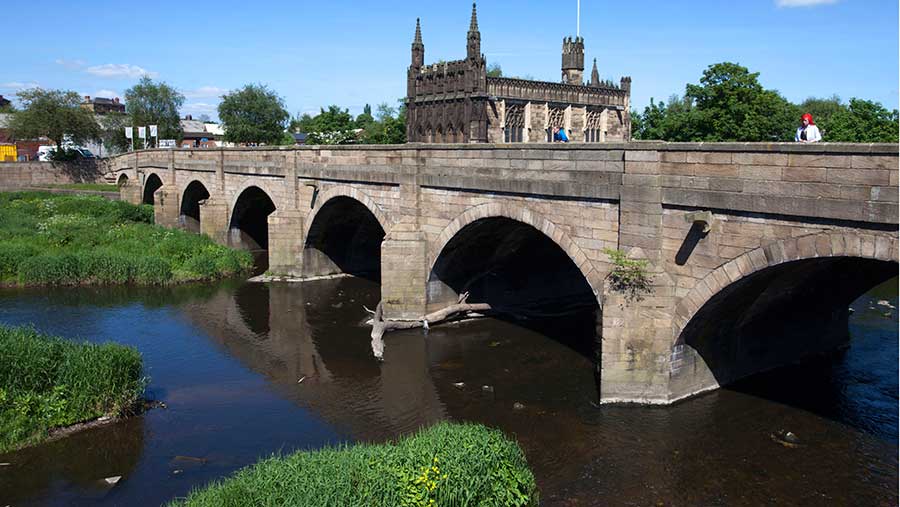Farmers win River Calder nitrate zone appeal
 River Calder © Mark Sunderland / robertharding/REX/Shutterstock
River Calder © Mark Sunderland / robertharding/REX/Shutterstock A group of farmers who farm near the River Calder in north-west England have successfully appealed a decision to designate the catchment as a nitrate vulnerable zone (NVZ).
Although the case was argued under the name of just one appellant – dairy farmers Eric and Jaqueline Lonsdale of Foulds House Farm in Sabden, Lancashire, it was based on the findings of a feasibility study funded by more than 50 NFU members.
Defra had argued that the catchment should be designated an NVZ based on an estimate that 14-35% of the annual average nitrate load in the River Calder was from agricultural sources.
See also: What farmers need to know about appealing an NVZ designation
However, Andrew Rothwell, NFU group secretary in Clitheroe, found 52 members affected by the proposed designation who clubbed together to pay for a feasibility study.
Low input grass
The farmers were concerned about the extra paperwork and slurry storage requirements that being part of an NVZ would bring.
They also had questions about how much pollution they could be causing given many in the catchment were operating low-input grass systems as part of the old Entry Level Stewardship (ELS) scheme.
The 52 farmers contributed £50 each to pay for a specialist water management company to investigate whether Defra’s estimates could be challenged.
A company called Hafren Water was appointed to carry out a detailed analysis of data from monitoring points along the river and determined that the agricultural contribution to nitrate levels was more likely to be about 6%.
Legal assistance
At this point, the NFU Legal Assistance Scheme agreed it would pay Hafren Water to fight the designation on behalf of the group.
The tribunal judge agreed with the assessment that the agricultural contribution was not significant and the River Calder should not be designated as an NVZ.
‘Nail in coffin’
Mr and Mrs Lonsdale, who fronted the appeal on behalf of the group, said the family received a letter from the Environment Agency in November 2016 telling them of their intention to designate the River Calder catchment as an NVZ.
“Financially we were down on our luck when the letter from the Environment Agency arrived and looked like it was going to be another nail in the coffin of dairy farming in this part of Lancashire,” he said.
“But I had farmers turning up at my front door asking what they could do about it and willing to sign a cheque there and then for the £50.
“The NFU has been essential in bringing us all together and hiring expert advisers we as individual farmers would never had known existed.”
